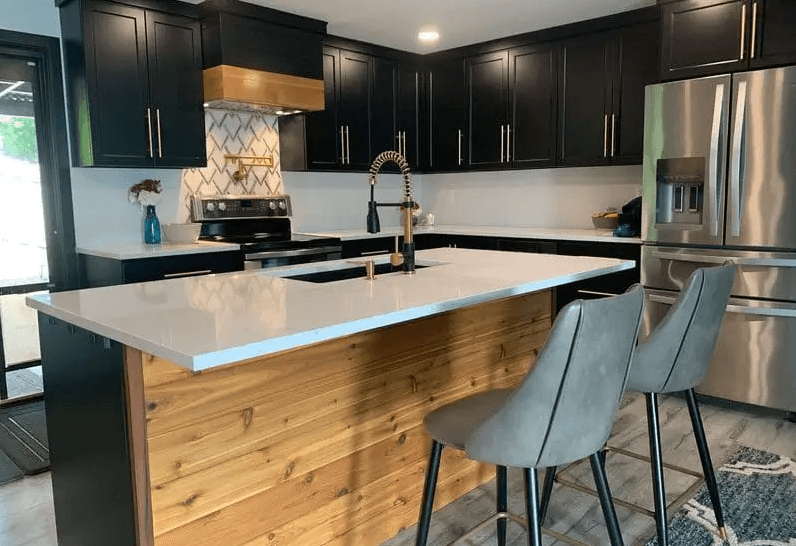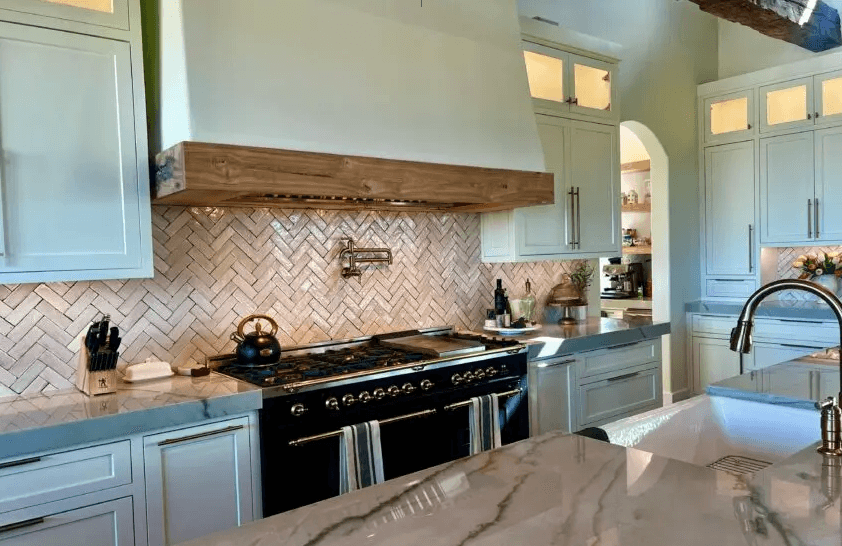Gas ranges have been a popular choice for home kitchens for many years due to their precise temperature control and efficient cooking abilities. However, there are concerns about whether using gas stoves could pose potential health risks. Proper ventilation with a good ducted range hood becomes more essential than ever when it comes to minimizing these potential risks and ensuring a healthy cooking environment within your home.
When installed and maintained correctly over your gas range, they can significantly improve indoor air quality.
By understanding the importance of a reliable ducted range hood, you can make an informed decision about your home’s cooking setup.
Key Takeaways
- An adequately powered range hood helps maintain indoor air quality
- Proper ventilation and maintenance of ducted range hoods are essential.
- Well-informed decisions about cooking equipment and ventilation aid in creating the healthiest possible home environment.
- Tieasy range hoods are worth buying, both in terms of quality and price.
Possible Health Risks Associated with Gas Ranges
If you are talking about the science of moving air, we are experts through and through. It’s our passion and what we do day in and day out. Health sciences, we know a thing or two and have some passions and interests there, but we would push you to other sources for the final say.
That said, some do have concerns about the health of gas ranges and the prolonged use of them in cooking situations in the following ways.
Air Quality and Pollutants
When you cook using gas stoves, you may face potential air quality issues, as they emit pollutants while burning gas. Burning natural gas can release nitrogen dioxide, carbon monoxide, and particulate matter, which, if not well ventilated, can impact indoor air quality.
Gas Stove Emissions and Respiratory Health
According to Scientific American, people who use gas stoves without proper ventilation may experience increased rates of asthma, allergies, and other respiratory problems.
Childhood Asthma and Respiratory Issues
Today reports that living in a home with a gas stove where proper ventilation is not available may be linked to a higher risk of developing childhood asthma. As a precaution, limit your children’s exposure to gas stove fumes and maintain good kitchen ventilation with the use of a ducted range hood.
Remember, while gas ranges may have certain health risks, you can mitigate these by ensuring proper ventilation and ducting your cooking space with a properly sized and powered range hood. By taking these steps, you can enjoy the benefits of gas stoves while keeping your home’s air quality in great shape.

Ducted Range Hoods and Ventilation
Benefits of Ducted Range Hoods
Ducted range hoods offer several advantages when it comes to maintaining healthy indoor air quality in your kitchen. Here are a few benefits:
- Efficient Ventilation: They efficiently remove smoke, fumes, and dirty air, ensuring a cleaner and fresher environment while cooking.
- Reduced Health Risks: Using a ducted range hood helps minimize cooking pollutants, lowering the potential health risks associated with gas ranges.
Carbon monoxide risks from gas stoves?
Gas stoves can produce carbon monoxide (CO) if they aren’t functioning correctly or don’t have enough ventilation. Exposure to high levels of CO can cause symptoms like headaches, dizziness, and even death. To reduce CO risks, ensure that your stove is working correctly and ventilate your kitchen when your gas stove is in use. Be proactive and install a carbon monoxide detector to alert you if levels become dangerous.




Leave a comment
All comments are moderated before being published.
This site is protected by reCAPTCHA and the Google Privacy Policy and Terms of Service apply.